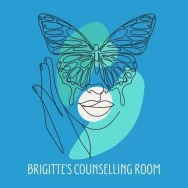Understanding Family Therapy:
Strengthening Bonds, Resolving Conflict
Family therapy that focuses on the dual relationship between a parent and an adult child, such as a mother and daughter or a son and father, is a specific and powerful form of systemic therapy. These bonds are often foundational to an individual's sense of self and can be a source of deep connection or profound conflict.

The Dynamics at Play
Mother-Daughter:
This relationship is often characterized by a strong emotional connection, which can be a source of support but also lead to enmeshment or unhealthy boundaries. Therapy in this context often addresses issues such as:
* Emotional Enmeshment: When the emotional needs of the mother and daughter are so intertwined that they lack individual identity and independence.
* Unspoken Expectations: Daughters may feel pressured to live up to their mother's expectations, while mothers may feel a loss of identity as their daughter becomes independent.
* Communication Breakdown: A history of passive-aggressive communication, criticism, or a lack of open expression can lead to resentment and distance.
* Generational Patterns: The therapy may explore how the mother's relationship with her own mother has influenced her dynamic with her daughter, helping to break cycles of unhealthy behavior.
Father-Son:
This relationship often involves a different set of challenges, frequently centered on communication, expectations of masculinity, and the transfer of values. Therapy may focus on:
* Lack of Emotional Expression: Societal norms can make it difficult for fathers and sons to express vulnerability or deep emotions, leading to a breakdown in communication and a sense of emotional distance.
* Performance and Achievement: The relationship may be defined by competition or a focus on success and accomplishment, rather than genuine emotional connection.
* Differing Values: As the son becomes his own man, he may find his values and life choices conflict with his father's, leading to tension and judgment.
* Role Transition: The therapy can help both parties navigate the shift from the father-as-authority-figure to a more equal, adult-to-adult relationship.
The Therapeutic Approach
Family therapists working with these dual relationships use a systemic approach, recognizing that the problems are not the fault of one person but a result of the entire system's dynamics. The therapy aims to:
* Improve Communication: The therapist creates a safe space for both individuals to express their feelings and needs using "I" statements, fostering active listening and empathy.
* Establish Healthy Boundaries: This is a core component, as it helps both the parent and child define their individual identities and autonomy. It
allows for a relationship based on mutual respect rather than obligation or emotional reliance.
* Process Unresolved Issues: The therapist helps them identify and address historical resentments, unmet needs from childhood, and long-standing
conflicts.
* Reframe Narratives: Both parties often hold specific stories or beliefs about their relationship. Therapy helps them challenge these narratives and
co-create a new, more positive story that promotes understanding and connection.
* Foster Individuation: A key goal is to help the adult child separate from their parent's identity while maintaining a healthy, loving connection.
This process benefits both individuals, allowing them to grow as separate people while preserving their bond.
Get in touch
Feel free to contact me if you have any questions about how counselling works, or to arrange an initial assessment appointment. This enables us to discuss the reasons you are thinking of coming to counselling, whether it could be helpful for you and whether I am the right therapist to help.
You can also call me on 07305142551 if you would prefer to leave a message or speak to me first. I am happy to discuss any queries or questions you may have prior to arranging an initial appointment.
All enquires are usually answered within 24 hours, and all contact is strictly confidential and uses secure phone and email services.
© Brigitte's Counselling Room
powered by WebHealer
